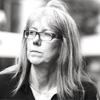Despite 27 years of uninterrupted economic growth, homelessness is rising in Australia.
What ought to be a fundamental human right – like access to food, water, education and health – is increasingly denied to people in one of the wealthiest countries in the world.
More worrying is that increasing numbers of those seeking help for homelessness actually have jobs.
Wage stagnation not experienced since the early 1990s recession, combined with high housing costs, has pushed many workers over the edge. Wages grew by just 2.1 percent last year. Housing costs grew by 3.4 percent.
The Victorian Council to Homeless Persons (CHP) has released an analysis showing 20,302 employed workers sought homelessness support in 2016-17, compared to 15,931 in 2013-14.
Homelessness is not primarily about people sleeping in the streets. The hidden homelessness of couch surfing from friend to relative to friend, of families living in their cars, of accessing and exhausting short term emergency accommodation, makes up most of the iceberg of which “sleeping rough” is only the tip.
Added to this are growing numbers of workers in housing stress. Households are considered to be in housing stress when they pay more than 30 percent of their income on rent, making it difficult to pay for primary needs such as food, heating, medicine and transport.
If people are to keep a foothold in the housing market, they often have to move further out from CBDs, adding hours to the travel time to and from their jobs.
The latest rental affordability index shows that households earning $50,000 a year looking for a two-bedroom rental have to go at least 113km from Melbourne to escape unaffordable rent.
According to Jenny Smith of CHP, “There is now not a single neighbourhood in Melbourne or Victoria’s regional cities that is affordable for a single person on Centrelink, a single pensioner or a single parent on a low part time income”.
It is a perfect capitalist storm. Wages aren’t rising, and for those in insecure or low-paid work, rents make housing unaffordable. Government cutbacks mean less public housing is available.
Around 195,000 households Australia-wide were on social housing waiting lists in June 2016, and the numbers continue to grow. The wait can be years. The human cost is immeasurable.








